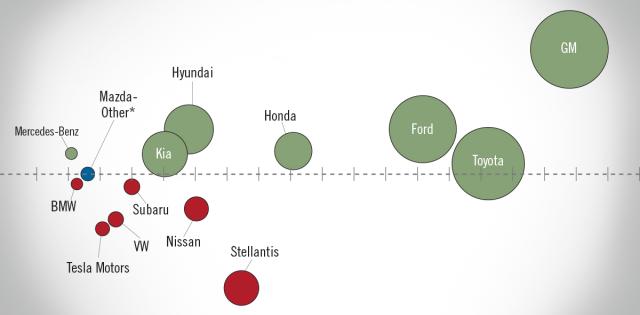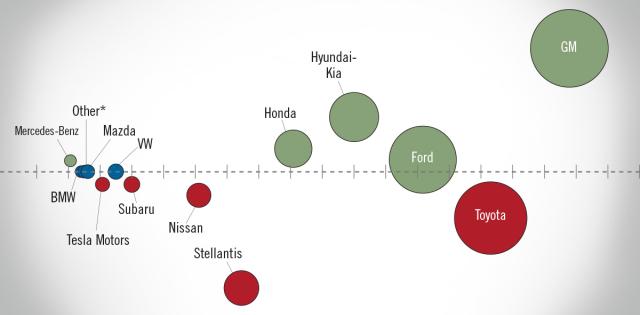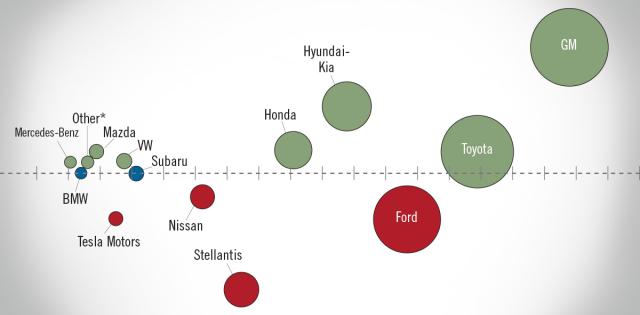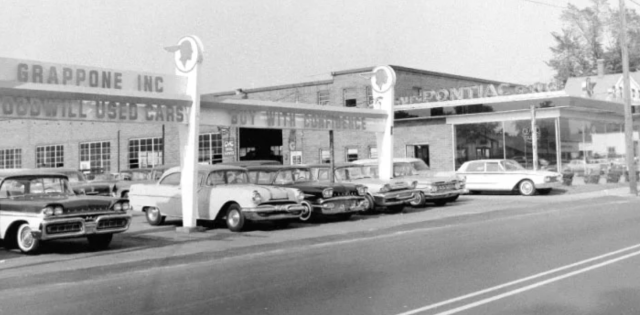The article below is sourced from Bloomberg Wire Service. The views and opinions expressed in this story are those of the Bloomberg Wire Service and do not necessarily reflect the official policy or position of NADA.
A year after Chief Executive Officer Oliver Blume defended his turnaround plan for Volkswagen AG, investors find themselves back at square one.
The German carmaker’s shares have gained only about 2.5% in the past 12 months, while other European high-volume manufacturers like Renault SA and Stellantis NV have surged.
When Blume addressed shareholders at the company’s annual general meeting on Wednesday, he emphasized patience, saying Volkswagen’s shift to the electric age comes as the industry “undergoes its biggest transformation ever.”
Investors, however, will want to see clear progress on tackling the company’s fraught transition to electric vehicles, which has included a number of botched new model rollouts and declining relevance in China, the biggest EV market. And now, with Chinese EV makers expanding in Europe, Volkswagen is under growing pressure to produce an electric car that more people can afford.
Volkswagen “lacks a ‘people’s car’ for the electric sector,” Union Investment’s Janne Werning said in prepared remarks ahead of Wednesday’s meeting. The company’s stock “urgently needs momentum.”
Volkswagen plans to unveil a €20,000 ($21,722) EV in 2027 to compete with the likes of BYD Co. The Chinese manufacturer is weighing two plants in Europe and aims to bring its Seagull hatchback to the region next year at a price below €20,000.
Both Renault and Stellantis have been looking for partnerships to lower the cost of their electric offerings. Stellantis plans to sell EVs co-developed with China’s Leapmotor in Europe from September.
Renault, which is cooperating on battery-powered vans with Volvo AB, last year unveiled a compact electric passenger car that will be sold from 2026 for less than €20,000. In the past year, Renault’s shares have climbed 57% in Paris, while Stellantis is up around 40% in Milan.
Meanwhile, Volkswagen’s EV project with China’s Xpeng Inc., with first models for the market there to be released in 2026, is progressing at “enormous speed,” Blume said. “In China alone we plan to launch more than 40 new models over the next three years.”
What Bloomberg Intelligence Says
Competition in China’s battery electric vehicle market has put VW’s market share into a tailspin just as new rivals such as BYD have started gaining sales in Europe — exposing it to new challenges and geopolitical risks such as tariffs.
— Joel Levington, director of credit research
Blume took over as Volkswagen CEO in 2022 while retaining the same title at Porsche, putting him in the unusual position of leading not only the parent company but also one of its most important brands. Some investors say his dual role carries conflicts of interest and hinders the company’s performance.
“Choose a company. Listen to the capital market. Focus on one task,” Deka Investment’s Ingo Speich said in prepared remarks, adding that the company’s share price performance was “unsatisfactory” compared to European competitors.
Blume hasn’t signaled he’s ready to give up one of his jobs. His message to investors is that he’s setting ambitious targets and aiming for double-digit returns.
“The goals are to increase earnings, work on costs in all areas and at all levels of the company, and to tap into additional sources of revenue,” he said.
Volkswagen is prepared to increase the free float of truckmaker Traton SE, Blume said, a move that raises the unit’s chances of joining the MDAX mid-cap index. The group is exploring the sale of as much as €1 billion in Traton shares, Bloomberg reported earlier this month.
While Blume has embarked on a €10 billion cost-savings program to boost returns at the company’s namesake brand, Speich said the results have been “too meager.”
Competitors, he added, have been more efficient with their investments and the transformation toward electric mobility, leading to “dramatically shifting market shares.”
In addition to the cost cuts, Volkswagen’s brands plan to introduce more than 30 models this year and are bolstering hybrid offerings to combat weaker EV demand in Europe.
“VW’s plans are big, but the deciding factor may be operational execution, something the company isn’t particularly known for,” Bloomberg Intelligence’s Joel Levington said.
For more stories like this, bookmark www.NADAheadlines.org as a favorite in the browser of your choice and subscribe to our newsletter here:










